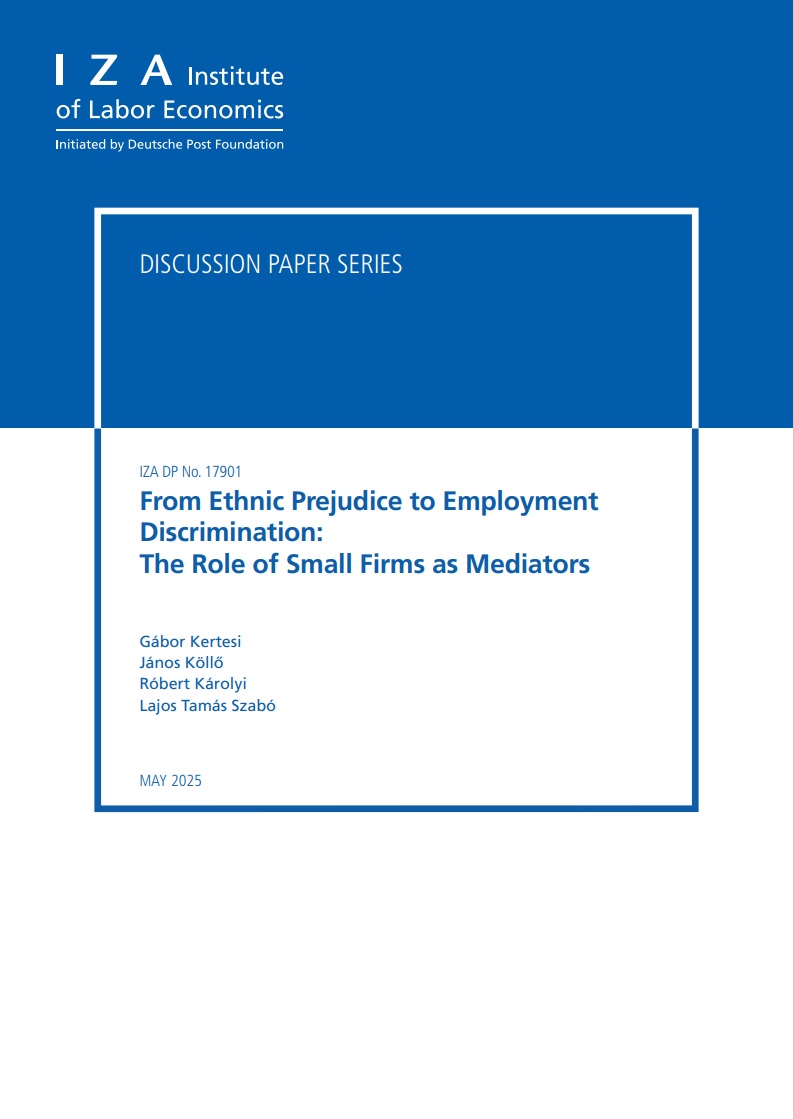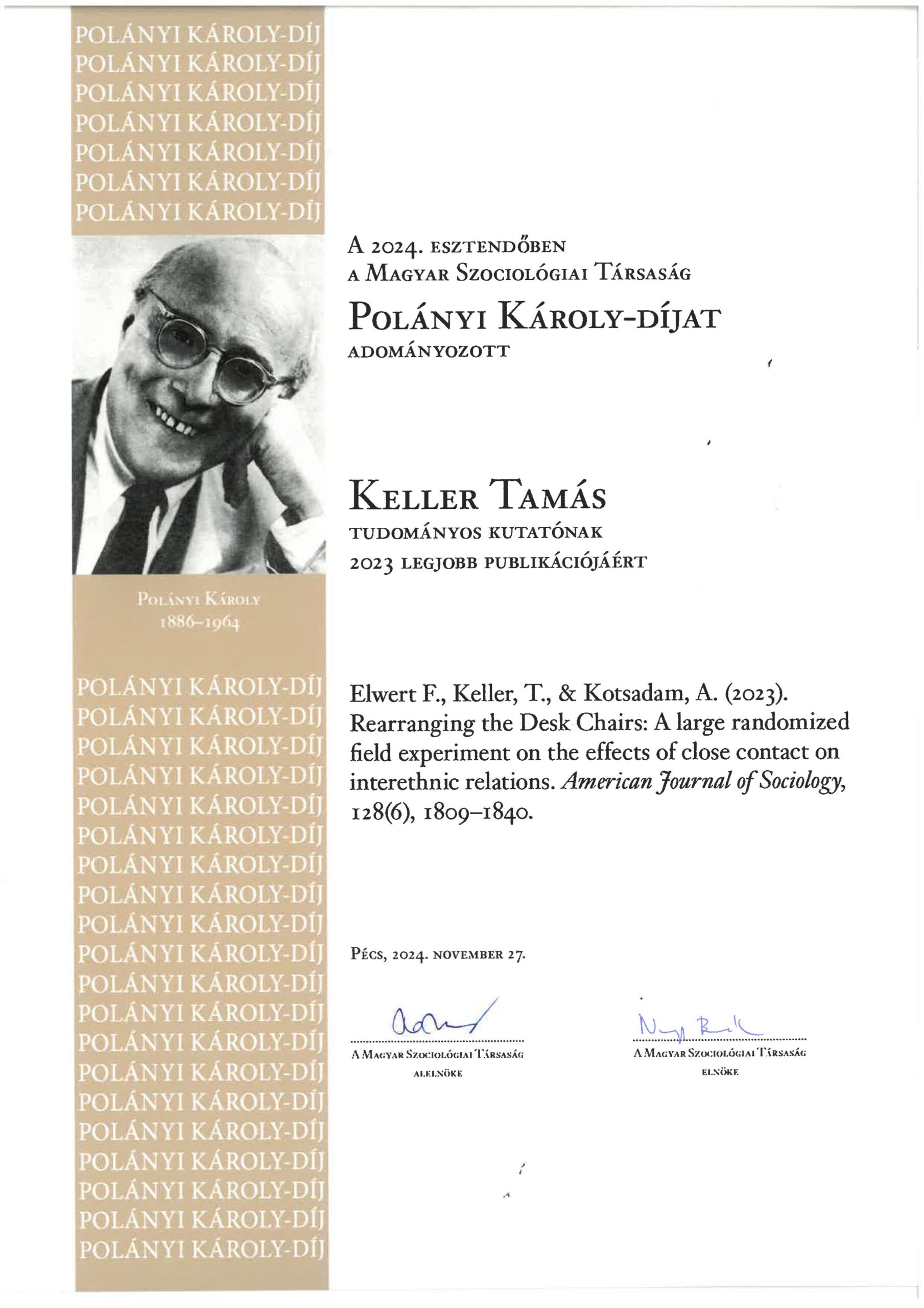Which Sectors Go On When There Is a Sudden Stop? An Empirical Analysis
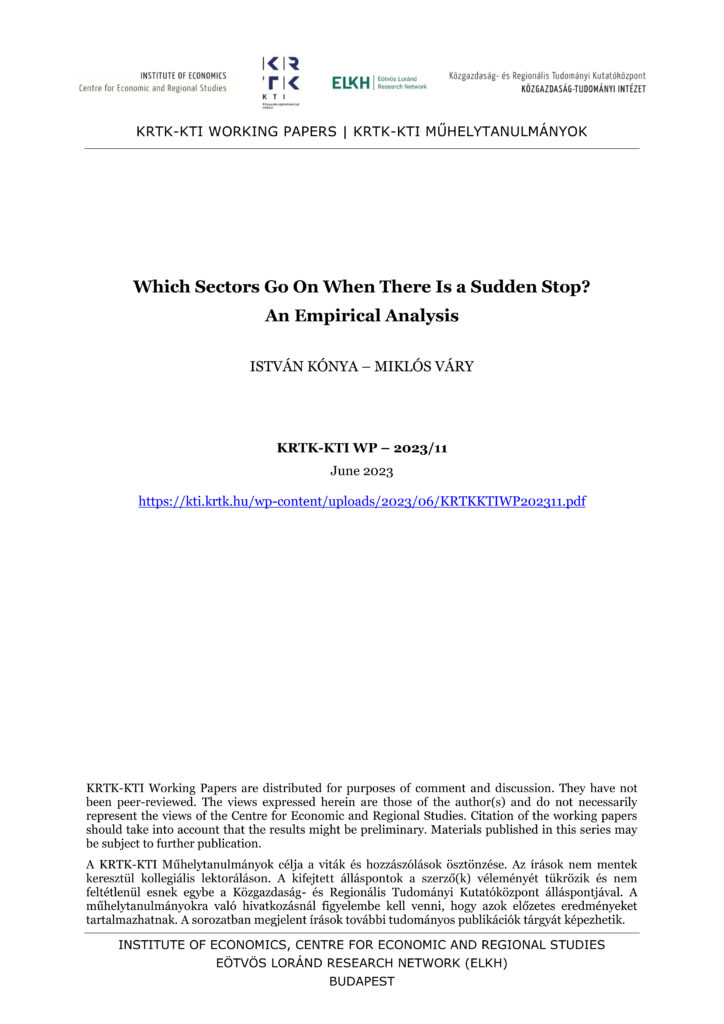
This paper analyzes the dynamics of sectoral Real Gross Value Added (RGVA) around sudden stops in foreign capital inflows. We identify sudden stop episodes statistically from changes in gross capital inflows from the financial account, and use an event study methodology to compare RGVA before and after the start of sudden stops. In the baseline […]
The Effect of Air Pollution on Fertility Outcomes in Europe
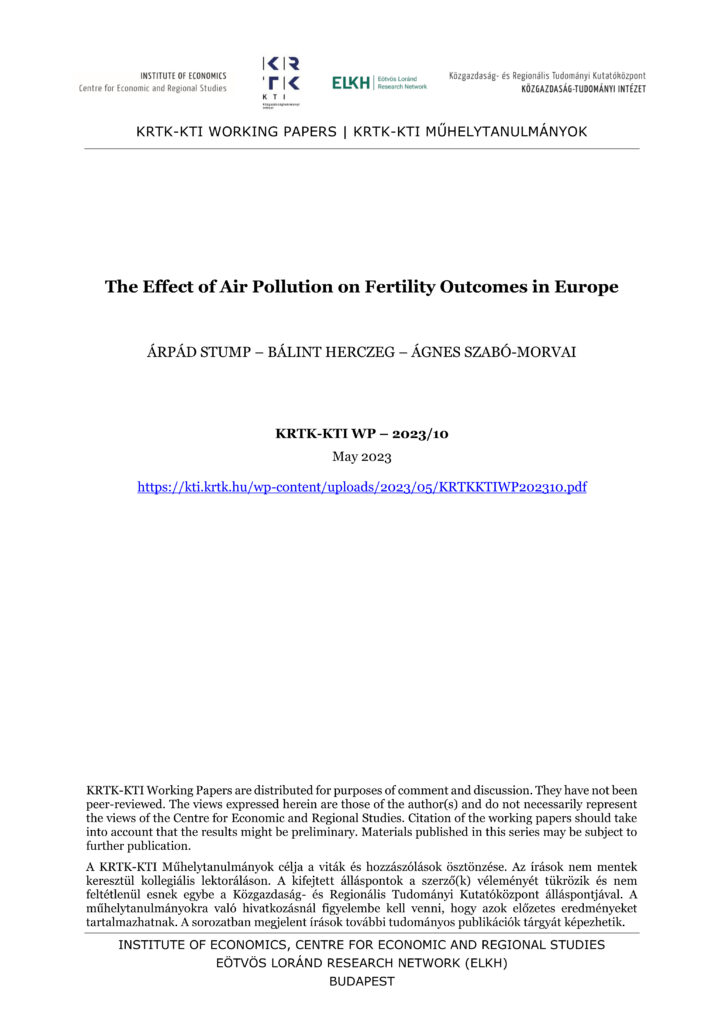
This paper studies the effect of ambient air pollution on the number of births in the European Union. We collect air pollution data with web scraping technique and utilize variations in wind, temperature, number of heating, and cooling days as instrumental variables. There are 657 NUTS 3 regions included in the regressions, each with 2 […]
The effect of funding liquidity regulation and ESG promotion on market liquidity
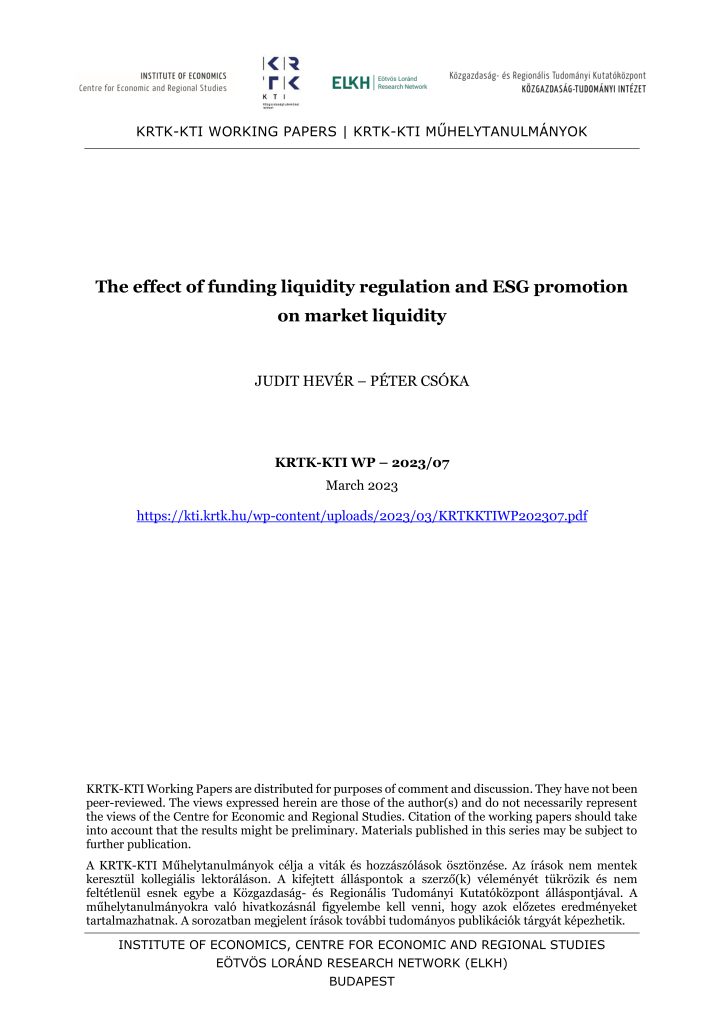
Liquidity is a key consideration in financial markets, especially in times of financial crises. For this reason, regulatory attention to and measures in this field have been on the rise for the past years. Based on practical experience, regulations aiming at ensuring funding liquidity or, in general, reducing certain risky positions have the side effect […]
Unexpected Inflation and Public Pensions: The Case of Hungary
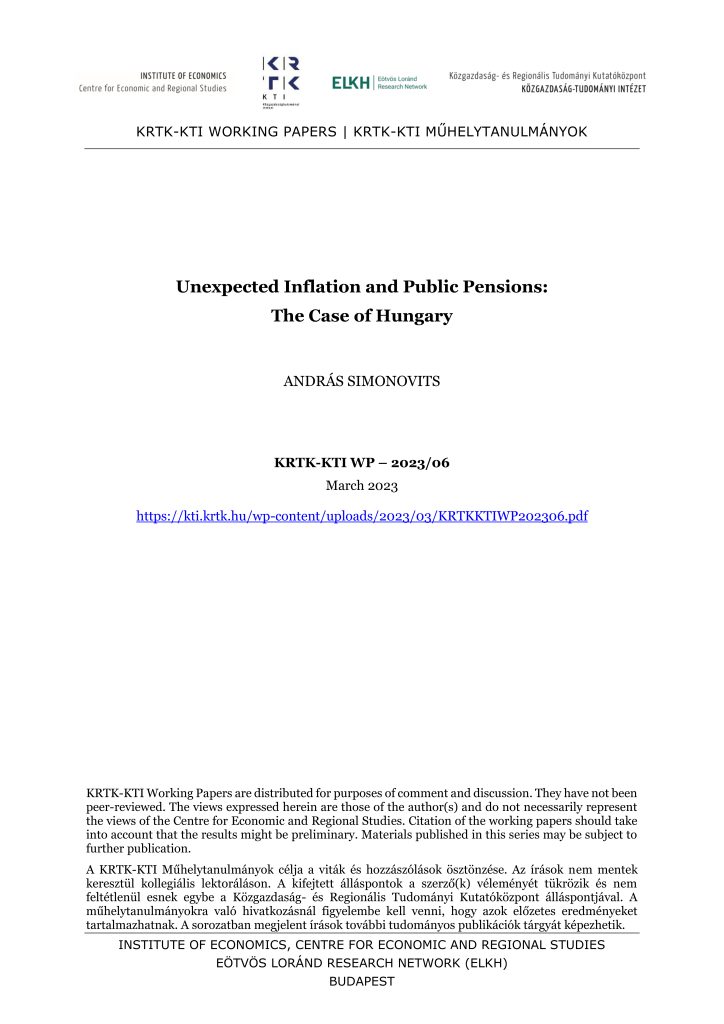
Public pensions are indexed to prices or wages or to their combinations; therefore, the impact of inflation on the real value of benefits can often be neglected, especially under indexation to prices. At high and accelerating/decelerating inflation like currently prevailing in Hungary, however, this is not the case. (i) With fast inflation of basic necessities, […]
Heterogeneous wage structure effects: a partial European East-West comparison
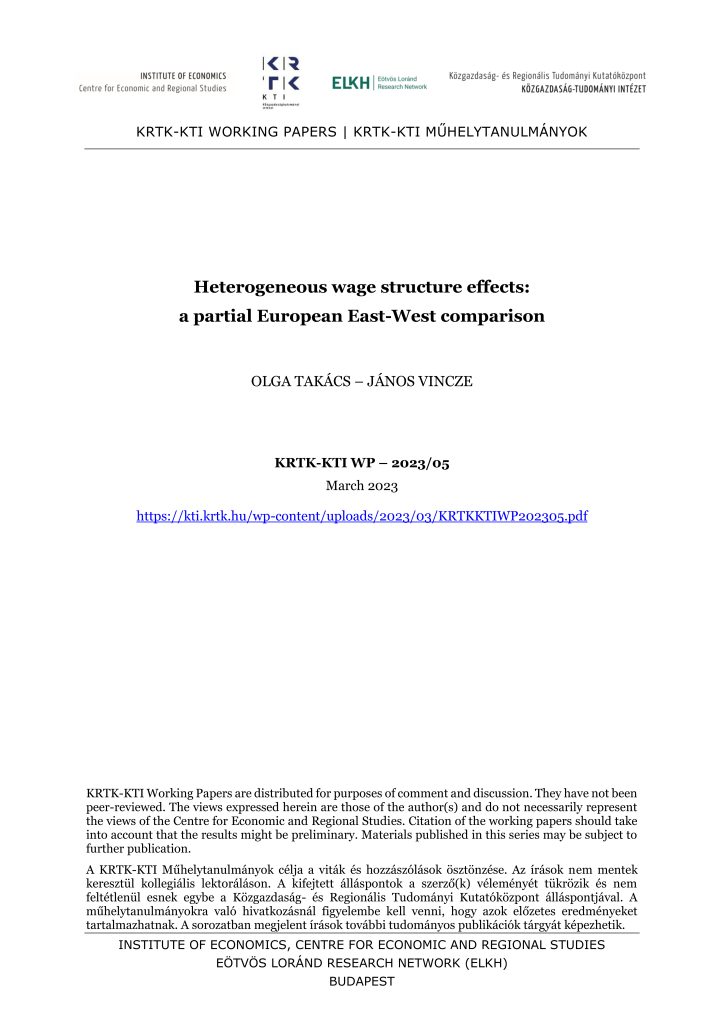
We estimate heterogeneous wage structure effects for country-pairs within the EU by the Causal Forest algorithm, then identify groups of workers with the highest and lowest discrepancies in terms of wage differentials. We find that, in the East-West comparison, age is the most consistently differentiating factor. People over 40 are most adversely treated in the […]
Where is the pain the most acute? The market segments particularly affected by gender wage discrimination in Hungary
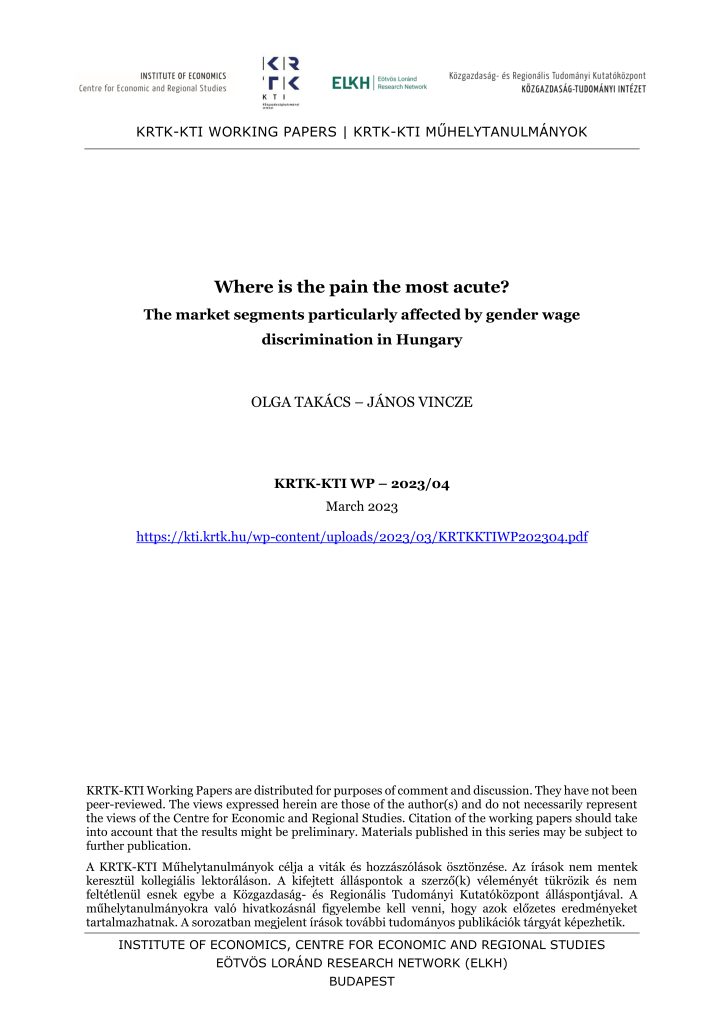
The gender earnings gap can be attributed either to the different distribution of males and females across jobs or to within job biases in favour of men. The latter is frequently called the wage structure effect, and it may be interpreted as wage discrimination against women. In this paper we focus on this second source […]
Precautionary Fertility: Conceptions, Births, and Abortions around Employment Shocks
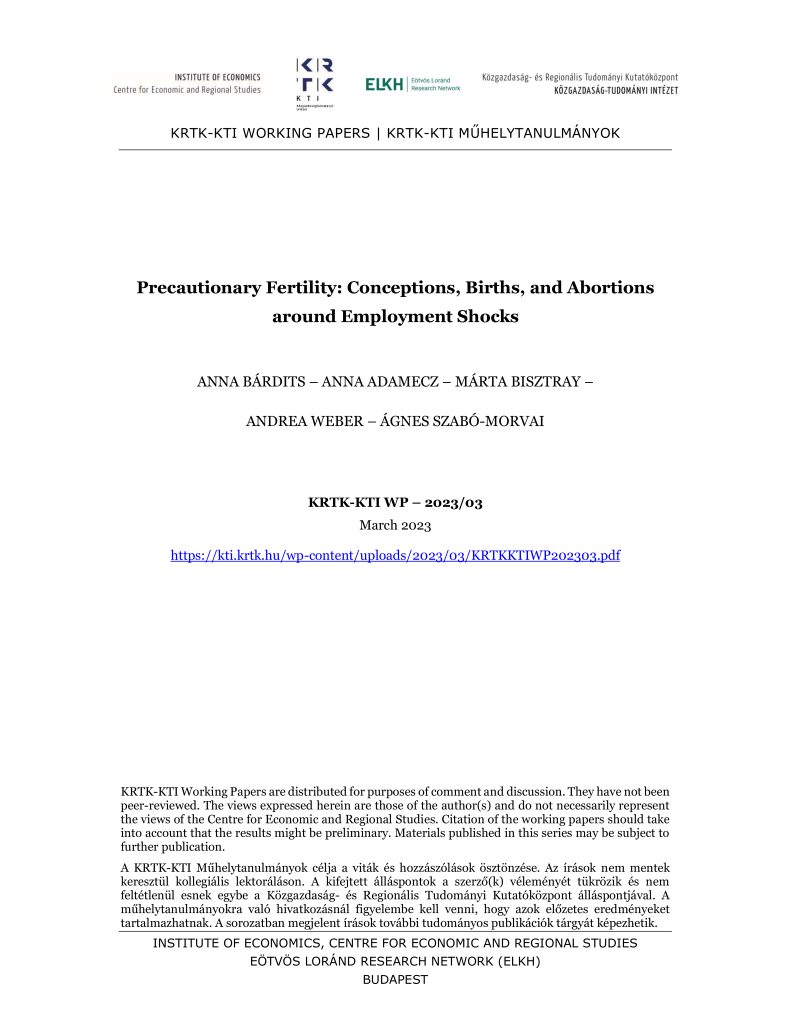
This paper studies the effects of employment shocks on births and induced abortions. We are the first to show that abortions play a role in fertility responses to job displacement. Furthermore, we document precautionary fertility behavior: the anticipatory response of women to expected labor market shocks. Using individual-level administrative data from Hungary, we look at […]
An Axiomatization of the Pairwise Netting Proportional Rule in Financial Networks
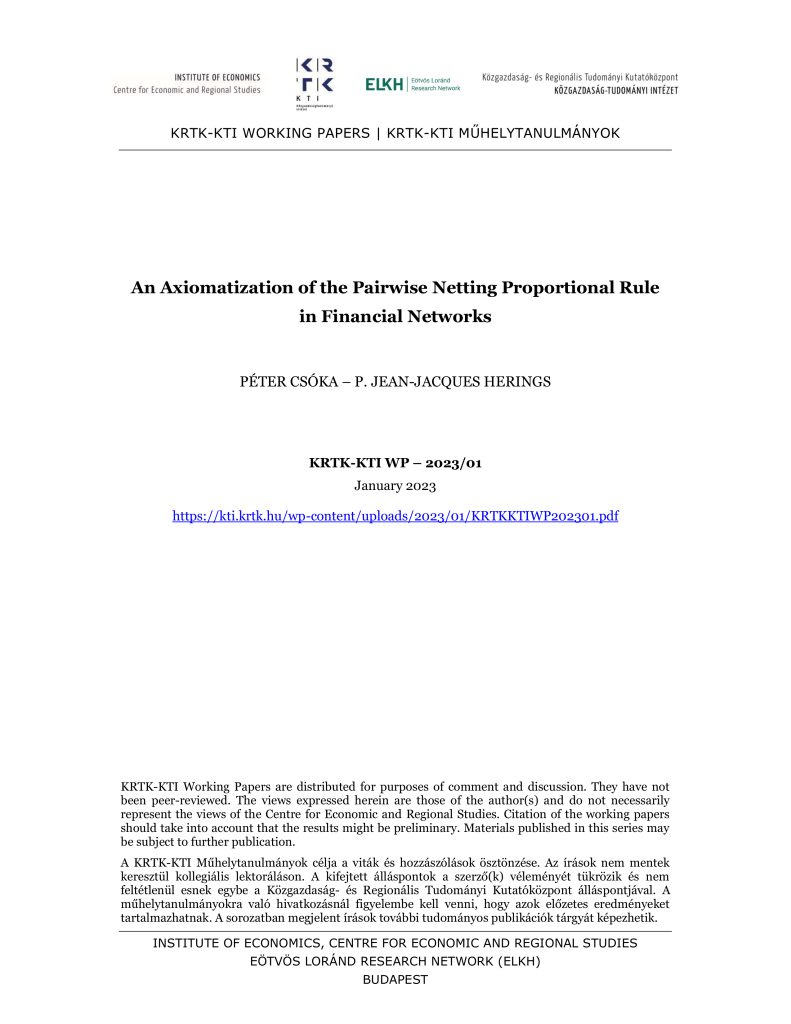
We consider financial networks where agents are linked to each other via mutual liabilities. In case of bankruptcy, there are potentially many bankruptcy rules, ways to distribute the assets of a bankrupt agent over the other agents. One common approach is to first apply pairwise netting of agents that have mutual liabilities and next use […]
THE HUNGARIAN LABOUR MARKET 2020 – The COVID-19 Pandemic
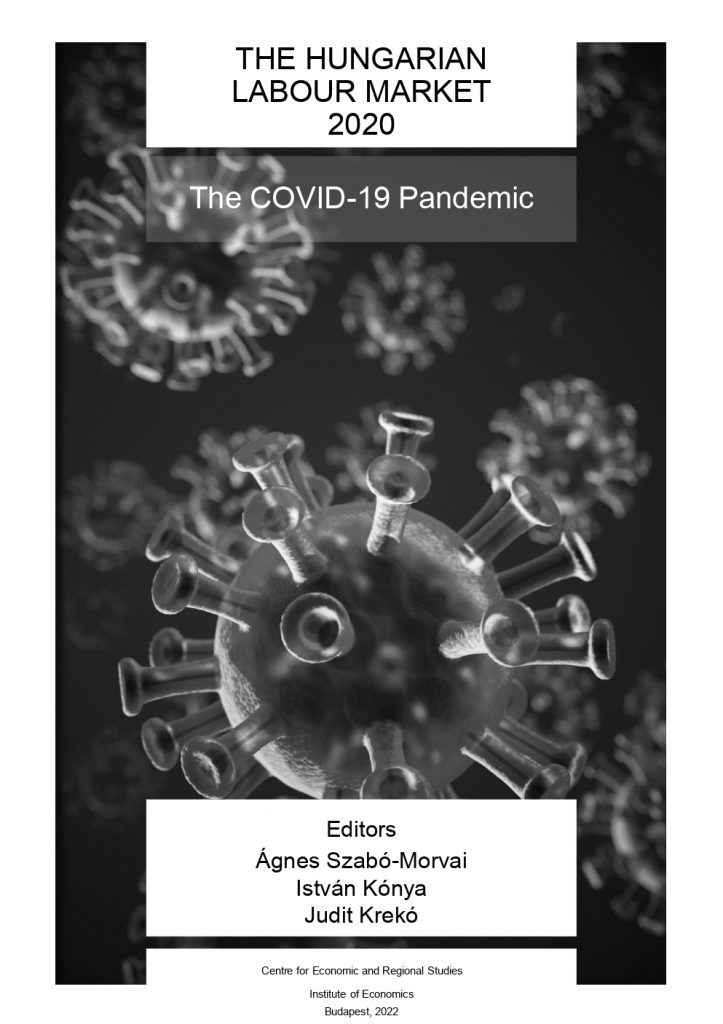
The Hungarian Labour Market Yearbook series was launched in 2000 by the Institute of Economics, in order to report on the processes and latest trends of the Hungarian labour market and employment policy, and provide an in-depth analysis of a particular subject each year. In compiling the content of each yearbook, the intention of the […]
THE HUNGARIAN LABOUR MARKET 2020
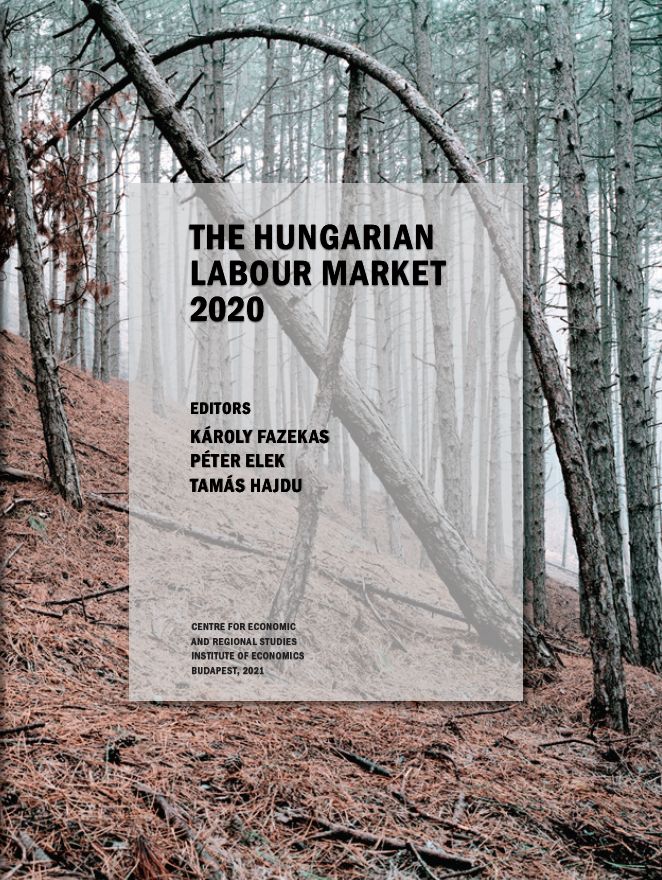
The Hungarian Labour Market Yearbook series was launched in 2000 by the Institute of Economics, in order to report on the processes and latest trends of the Hungarian labour market and employment policy, and provide an in-depth analysis of a particular subject each year. In compiling the content of each yearbook, the intention of the […]
COMPETITION AND REGULATION 2020
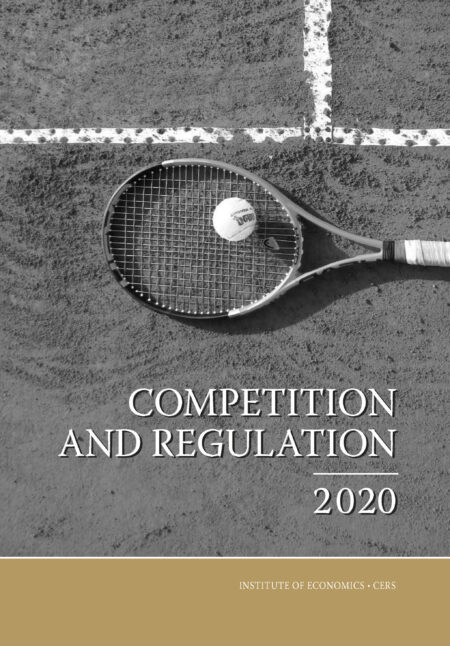
The Institute of Economics, CERS launched a new series of publications entitled “Verseny és szabályozás” (Competition and Regulation) in 2007. Twelve annual volumes have been published so far in Hungarian. The current volume is the second one in English, and it contains 10 selected translations from the crop of the last four years. It offers […]
THE HUNGARIAN LABOUR MARKET 2019
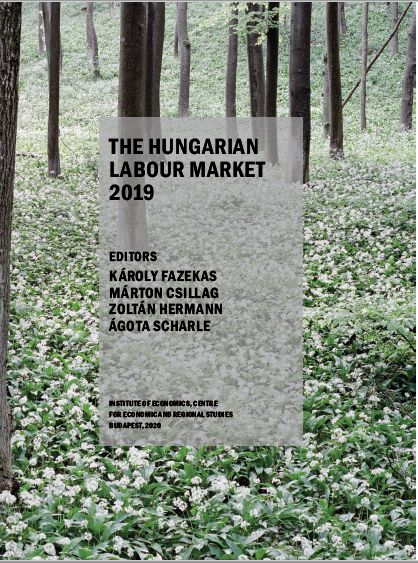
The Hungarian Labour Market Yearbook presents characteristics of the Hungarian labour market and employment policy, and provides an in-depth analysis of a topical issue each year. It is an important focus for the analyses and data published in the yearbook series to serve as a good source of knowledge on the various topics of labour […]


